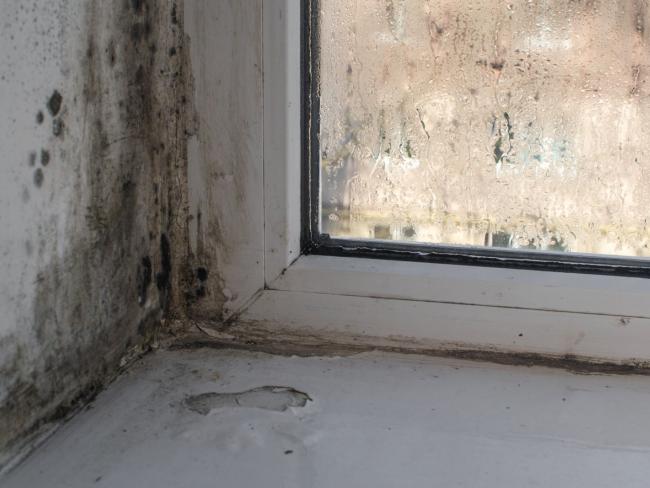2 June 2025

Mould in houses is dangerous to health, and needs treating. Photo ja-aljona / shutterstock.com.
There is wide agreement that housing in Britain is in crisis. The loss of social housing is one of many factors, exacerbated by the poor state of repair of many rented homes, as a recent report highlights.
The Housing Ombudsman for England is responsible for complaints against social housing landlords. It has reported an astounding increase in complaints about living conditions compared to five years ago – getting on for five time the number!
Damp and mould
Common reasons for complaint include asbestos, electrical and fire safety, pest control, leaks – and inevitably damp and mould. It is commonplace to hear of lifts broken down, and a shortage of skilled engineers to maintain them.
Failure of landlords to carry out repairs is the chief reason for anger among council and housing association tenants. They have not forgotten that poor maintenance contributed to the 2017 Grenfell Tower fire.
Anger
The ombudsman suggests anger is reaching boiling point. “What we’re seeing is exponential in comparison to other ombudsmen”, he said. Among other things, the report features collapsed ceilings containing asbestos left unrepaired for years.
The excuse is that nearly half of social homes in England were built before 1964, with resulting damp and mould on the increase. The Labour government has ambitious schemes for building more houses, but landlords claim they don't have the money or manpower to maintain their existing properties.
New law
The law was altered following the death of a two-year-old, Awaab Ishak, from exposure to mould in 2020. From October this year landlords will be required to make emergency repairs within 24 hours. But legal provisions about removing asbestos or attending to contaminated water won’t come in until 2027.
‘The landlord ignored repeated requests for remedial works and blamed the family.’
The landlord at the time, Rochdale Boroughwide Housing, had ignored repeated requests from Awaab’s parents for remedial works to their flat in the three years leading up to his death. Instead, the housing association blamed the family for causing the mould. Their home was just one of many unfit for human habitation on their estate.
Overcrowding
That wasn’t an isolated case. ITV News reported on 29 May 2025 on the case of a 15 week-old baby, Akram Mohammed, who appears to have died of acute pneumonia as a result of mould. He was one of three children living with parents in a one-bedroom housing association flat. Overcrowding is a contributory cause of damp. An inquest will be held in August.
The Housing Ombudsman claims that a long-running ITV News investigation into social housing conditions has raised awareness of tenants’ rights and led to the rise in complaints. That avoids the question why so much social housing is in poor condition.
No confidence
Indeed, Akram’s parents had complained, apparently to no effect. Even where tenants know their rights, they have little confidence that the ombudsman can help.
The Ombudsman is calling for a national tenant body. In doing so, it is tacitly admitting that the task of strengthening tenants’ rights and increasing landlord accountability is beyond its capability.
Private tenants
The situation for tenants of private landlords is worse. Some register voluntarily with the Housing Ombudsman, many do not. That may change with the Renters’ Rights Bill going through parliament, which will create a Private Rented Sector Ombudsman. If experience with the present ombudsman is anything to go by, this will not be much help.
‘The poor state of housing can’t be solved by regulation.’
The poor state of housing stock can’t be solved by relying on often ineffective regulation and blaming the previous government. The release of emergency capital, coupled with planned long-term investment, will be needed to address the decline in housing standards.
That’s unlikely to happen without a change in government policy. The Treasury presently defers to tight-fisted capital markets, and it is now prioritising spending on war, not the wants of Britain’s people.
